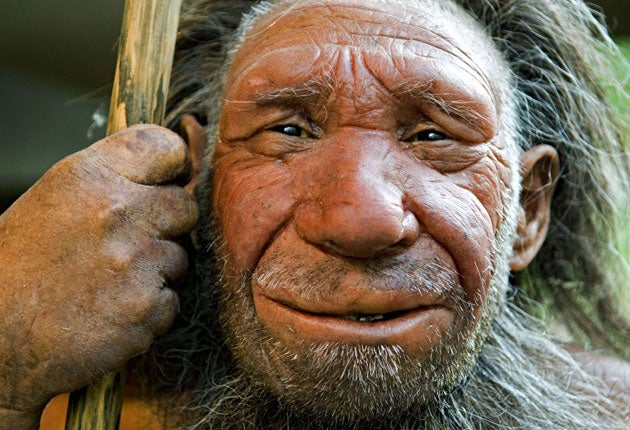Palaeolithic Park? Harvard professor seeks 'adventurous' woman to give birth to baby Neanderthal
Professor George Church plans to bring our long-extinct relative back to life using artificial DNA

Your support helps us to tell the story
From reproductive rights to climate change to Big Tech, The Independent is on the ground when the story is developing. Whether it's investigating the financials of Elon Musk's pro-Trump PAC or producing our latest documentary, 'The A Word', which shines a light on the American women fighting for reproductive rights, we know how important it is to parse out the facts from the messaging.
At such a critical moment in US history, we need reporters on the ground. Your donation allows us to keep sending journalists to speak to both sides of the story.
The Independent is trusted by Americans across the entire political spectrum. And unlike many other quality news outlets, we choose not to lock Americans out of our reporting and analysis with paywalls. We believe quality journalism should be available to everyone, paid for by those who can afford it.
Your support makes all the difference.A Harvard professor is looking for an "adventurous" woman to give birth to a baby Neanderthal.
It may sound like the plot of another Jurassic Park sequel, but the request is actually part of Professor George Church’s real-life plan to bring our long-extinct relative back to life.
Professor Church of Harvard Medical School is one of the world’s leading geneticists and believes his Neanderthal bone-sample analysis is now complete enough to reconstruct their DNA.
Although the 58-year-old is not certain his plan would work, he says he is now ready to put theory into practice.
Speaking to the German magazine Der Spiegel, Professor Church said: “Now I need an adventurous female human…It depends on a hell of a lot of things, but I think it can be done.”
Professor Church’s plan is to create artificial Neanderthal DNA based on the genetic code found in bone samples, then put this DNA into stem cells.
These cells would then be injected into a human embryo in the early stages of life, and would be strong enough to steer the embryo’s development along Neanderthal lines rather than Sapien.
After a few days growing in a laboratory the ‘neo-Neanderthal’ embryo would be implanted into the womb of the surrogate mother.
Professor Church is one of the scientists who helped initiate the Human Genome Project that successfully mapped human DNA, and believes that bringing Neanderthals back to life would have major benefits for mankind.
Rather than the primitive brutes they are often stereotyped as, Professor Church believes Neanderthals were highly intelligent, perhaps even more intelligent than humans.
Although they became extinct 33,000 years ago, Neanderthals were already using basic tools and it is believed their brains were roughly the same size as ours.
Professor Church told Der Spiegel: “Neanderthals might think differently than we do. They could even be more intelligent than us.”
He added: “When the time comes to deal with an epidemic or getting off the planet, it’s conceivable that their way of thinking could be beneficial.”
Human cloning is illegal in many countries, but as Professor Church is theoretically dealing with a Neanderthal, not a Homo Sapien, existing laws may not apply.
As well as the ethical concerns of creating a neo-Neanderthal, scientists believe the resultant baby could lack immunity to modern diseases, and may not survive.
There are further concerns that the process might lead to deformities, and there are also obvious risks to the surrogate mother.
Bioethicist Bernard Rollin of Colorado State University has voiced his uncertainty over how a Neanderthal would fit into the modern world.
He said: “I don’t think it’s fair to put people... into a circumstance where they are going to be mocked and possibly feared.”
And Philippa Taylor of the Christian Medical Fellowship said: “It is hard to know where to begin with the ethical and safety concerns.”
Join our commenting forum
Join thought-provoking conversations, follow other Independent readers and see their replies
Comments